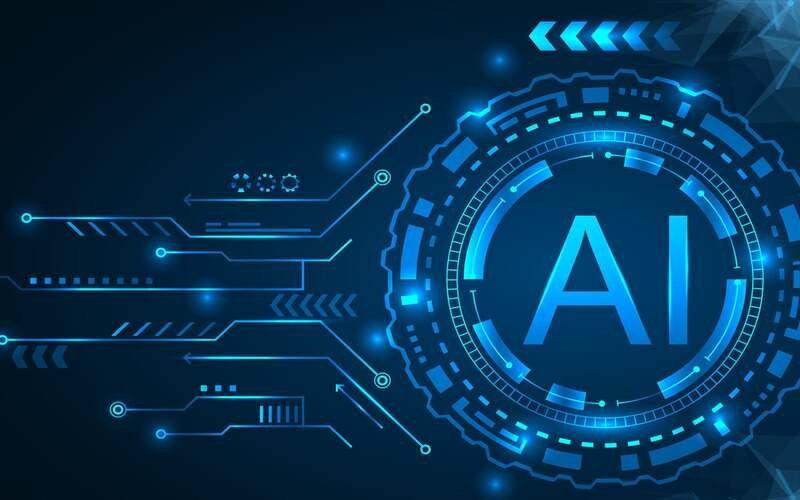Generative AI in Games: Navigating Copyright Challenges and Ownership Rights
In video games, generative AI has introduced innovation and excitement. Games like Nick Walton’s AI Dungeon, which uses OpenAI’s GPT-3 as its engine, have become extremely well-liked because they enable players to create interactive stories using text responses from AI. However, this surge in generative AI in gaming has also raised important questions surrounding copyright, authorship, ownership, and legal complexities. In this article, we examine the copyright crisis that generative AI in games has brought about and shed light on the difficulties that developers and the gaming industry face.
Copyright Concerns in AI Dungeon and Beyond
As a text-based fantasy simulation game, AI Dungeon relies on the collaborative interaction between players and AI-generated content. While the game’s user agreement is vague about ownership, it is important to note that current copyright laws recognize only humans as authors. This discrepancy raises concerns regarding the legal status and ownership of AI-generated content. Similar complexities exist in other AI-powered tools, such as ChatGPT, which have been referred to as “plagiarism machines” due to their ability to scrape human creativity and potentially incorporate the work of others.
Moreover, integrating third-party AI tools and platforms like Roblox further complicates the landscape of rights and ownership in the gaming industry. Valve’s rejection of a game submission with AI-generated placeholder art serves as a reminder of the difficulties in ensuring that the AI-generated assets used in their games have sufficient rights to the training data. These concerns reflect the evolving nature of AI technology and the need for clearer copyright legislation about AI-generated content.
Legal Implications and Challenges for Game Developers
The legal uncertainties surrounding generative AI in games pose significant challenges for developers and distributors. Valve, the Steam online game store operator, has taken a cautious stance on AI-generated artwork, blocking games on its platform that utilize AI models trained on copyrighted works. The company emphasizes that developers are responsible for ensuring they have appropriate rights to the AI models used in their games. However, the absence of clear case law addressing AI-generated content complicates the situation.
The legal considerations extend beyond copyright issues. Data privacy, particularly concerning children’s privacy and harmful content, is crucial in the gaming industry. Game companies must comply with data protection laws and regulations, such as California’s Age-Appropriate Design Code Act (AADC). This legislation requires companies to estimate players’ ages and implement appropriate measures to protect children’s privacy and ensure the suitability of content. While potentially useful, facial scanning for age estimation demands careful consideration of privacy and accuracy factors.
Navigating the Copyright Crisis: Recommendations and Future Outlook
As the gaming industry embraces generative AI and grapples with copyright challenges, there are several recommendations to consider:
- Transparency and Ownership Clarity: Game developers should strive for transparency and communicate ownership rights to users in terms of service and user agreements. Clearly defining the ownership and usage rights of AI-generated content can help mitigate legal disputes in the future.
- Collaboration with Legal Experts: Legal professionals specializing in intellectual property and AI law can provide valuable guidance to developers in navigating the complexities of copyright and ownership issues in AI-generated games.
- Copyright-Friendly AI Training: Developers should explore AI training methods that utilize data free from copyright infringements. By incorporating copyright-friendly training data, developers can minimize the legal risks of AI-generated content.
- Engaging with Copyright Legislation: Developers, industry associations, and AI technology companies should actively engage with policymakers to shape copyright legislation that better accommodates the nuances of AI-generated content. Lobbying for clear guidelines and frameworks can help establish a more secure environment for the use of generative AI in games.
Looking ahead, it is essential for the gaming industry to proactively address these legal issues as generative AI tools continue to evolve and gain prominence. Developers can strike a balance between innovation and legal compliance by adopting best practices, collaborating with legal experts, and advocating for copyright reforms.
Conclusion
Generative AI has ushered in a new era of possibilities in the gaming industry, allowing for immersive and dynamic gameplay experiences. However, the advent of AI-powered games raises complex copyright challenges and ownership concerns. Developers and industry stakeholders must work together to address these issues, promoting transparency, collaborating with legal experts, and engaging with policymakers to shape copyright legislation that accommodates the unique nature of AI-generated content. By doing so, the gaming industry can navigate the copyright crisis and continue to leverage the transformative potential of generative AI in games.

















































